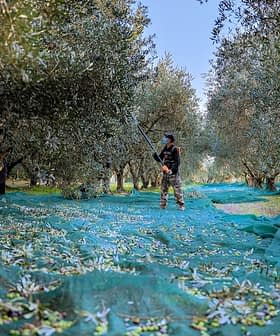France Cancels Tax Hike on Palm Oil
Indonesia threatened that it would not buy the military Airbus A 400M if the biodiversity law was adopted.
The French Government has decided to scrap any additional tax on palm oil for use in food products. The move was welcomed by the Malaysian Palm Oil Council, which said that the additional tax “would have put thousands of small farmers out of work.” The organization urged the French Government to drop “once and for all” what it viewed as an unfair tax campaign against palm oil.
Tax on palm oil has been an ongoing question first addressed in 2012 amid environmental concerns and discussed by the Senate and the National Assembly — the lawmakers responsible for the final decision.
Dubbed the “Nutella tax” because of the French love of the Italian chocolate spread, the initial plan applied to palm oil would have raised taxes from €100 per ton to €300 ($326) per year from 2017. It would have meant an increase to €500 per ton in 2018, 700 euros per ton in 2019 and €900 per ton in 2020.
However, strong protests from Malaysia and Indonesia — the two largest producers of palm oil — caused France’s National Assembly to approve the levy of a gradual surtax starting at €30 ($34) in 2017, €50 in 2018 and €90 in 2020, a considerable reduction from the origin proposition.
Palm oil is one of the least taxed vegetable oils in France. However, the new diversity bill in which the tax on palm oil was included was not approved by the National Assembly in June 2016 which meant that the additional tax had been scrapped altogether. France’s Secretary of State told Parliament that there was some legal uncertainty concerning the law which focused on only one type of vegetable oil.
The French daily publication Le Dauphine reported that it was a story of “a battle of diplomatic and commercial lobbying.” The paper said that Indonesia threatened that it would not buy the proposed military Airbus A 400M if the biodiversity law was adopted.
Indonesia’s defense minister told Reuters in May that the country planned to buy some military transport aircraft. Minister Ryamizard Ryacudu said: “I have a plan to buy A400s from Europe … but just a small number. There is no need to buy many.” Indeed, France’s economy would suffer a blow should the threat be carried out.
Environmental protection and consumers groups worldwide remain concerned about the destruction of forests and the negative health implications of palm oil.







